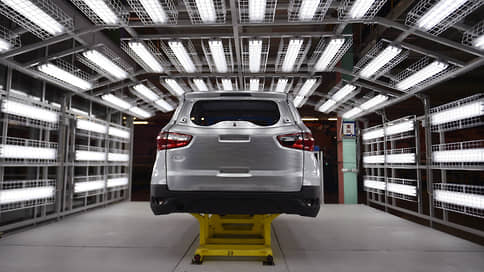AvtoVAZ, Sollers and Moskvich were included in the OFAC SDN list on September 14
[ad_1]

AvtoVAZ, Sollers and Moskvich came under US sanctions – now all traditionally Russian automakers, except Avtotor, are included in the SDN-list. Judging by the experience of KamAZ and GAZ, which have been in it for a long time, even blocking sanctions do not create insurmountable risks, for example, for projects to produce Chinese cars under their own brand. The biggest problems may arise for AvtoVAZ, whose future model is based on the Renault platform. In addition, the concern provided significant order volumes to the remaining global suppliers in the Russian Federation. The industry believes that the Chinese partners have already taken into account all the risks, but the rest may need to be replaced.
AvtoVAZ, Sollers and Moskvich were included in the OFAC SDN list on September 14. Let us remind you that UAZ, which is part of Sollers, is already subject to EU sanctions, and KamAZ and the GAZ group were already under American sanctions.
In fact, with the exception of the Kaliningrad Avtotor, the entire traditionally Russian auto industry is now in SDN.
AvtoVAZ and Moskvich refused to comment on the impact of sanctions on business. Sollers does not expect any consequences: “The group’s business has been completely restructured to sanctions-resistant components supply channels, payment mechanisms and is strategically focused on technological independence from external partners.”
Over the past year, Sollers has been focused on restarting the factories left behind after former partners (Mazda, Ford, Isuzu) left the Russian Federation, using models under its own brand created on the basis of Chinese licenses. The line is based on JAC technologies – the Moskvich models were created on the same basis, and KamAZ was actually involved in the work with the partner. KamAZ has the Compass model under license from JAC, the production of which continued despite the sanctions imposed back in June 2022.
AvtoVAZ will also assemble Chinese models under its own brand, including at the former Nissan plant based on FAW models.
The company was looking for other partners, claiming rights to the latest Chinese models, as well as integrating components from China into supplies (see “Kommersant” dated July 12).
But AvtoVAZ stands out from other players: before the crisis, the concern was actively integrated into the supply chains of its former shareholder Renault. As the EU introduced restrictions on the supply of components, AvtoVAZ temporarily stopped producing a number of models and also began replacing them. However, back in the spring, the public Avtograd News reported about interruptions in supplies allegedly from the Czech Republic – they were talking about anti-roll bars for the Lada Vesta NG and door hinges for the Lada Niva Travel. AvtoVAZ also received the rights to the Renault-owned CMF-B platform for the future Lada Iskra in 2022.
In addition, due to the scale of production, the concern provides a large volume of components ordered. AvtoVAZ has not disclosed its suppliers since the outbreak of hostilities, but some of them are subsidiaries of global manufacturers. Itelma, which is developing an ESP and ABS system for AvtoVAZ, was also included in the SDN-list on September 14. It also supplied ERA-Glonass units, including for brands from China. The general director of Itelma, Alexey Vorobyov, expressed surprise that “such a purely civilian enterprise as ours came under sanctions.”
In addition to automobile industry companies, the manufacturer of Tonar semi-trailers and tractors, the Kirov Plant, as well as ChTZ Uraltrak, were sanctioned on September 14.
Kommersant’s interlocutor at one of these companies noted that suppliers from China “have long been prepared for such a development of events.” This is confirmed by Kommersant’s source in one of the automakers.
“It is clear that projects, including those with the participation of suppliers from China, are working, so sanctions are unlikely to create unsolvable problems,” says automotive expert Vladimir Bespalov. He notes that the work of global supplier structures in the Russian Federation will depend on the policy of the parent company. The analyst admits that some of the restrictions will lead to the need to “move to indirect interaction,” including on export projects. Such a project was recently announced by AvtoVAZ (see “Kommersant” dated July 28) – he planned to return to production at the Al Amal plant in Egypt, where cars of other brands are also produced.
[ad_2]
Source link





